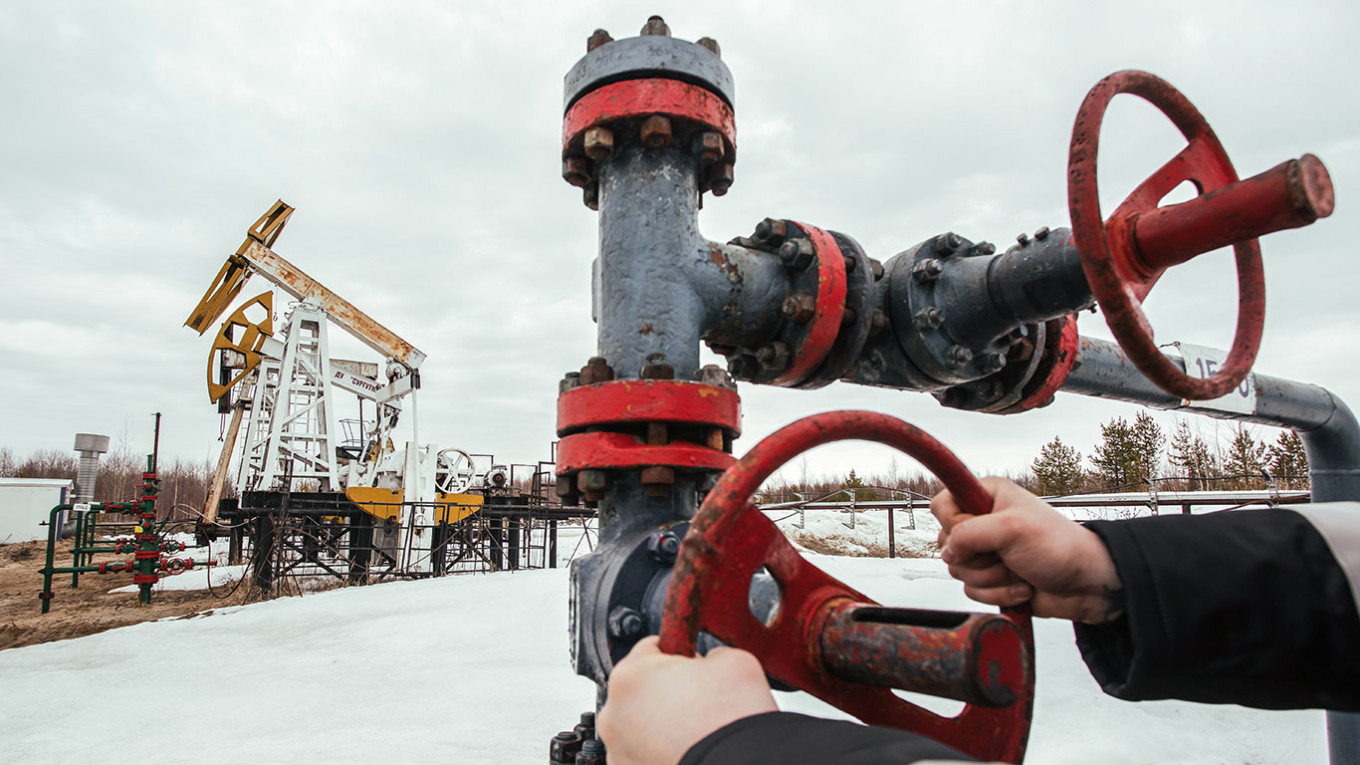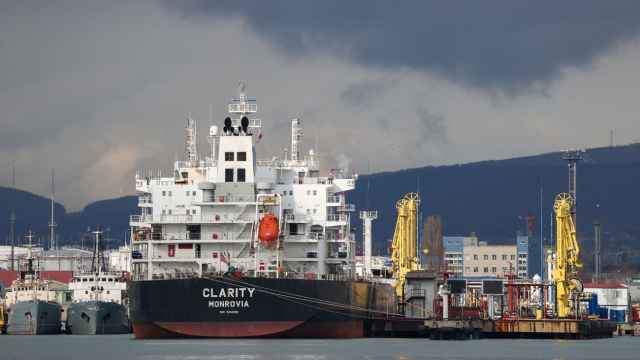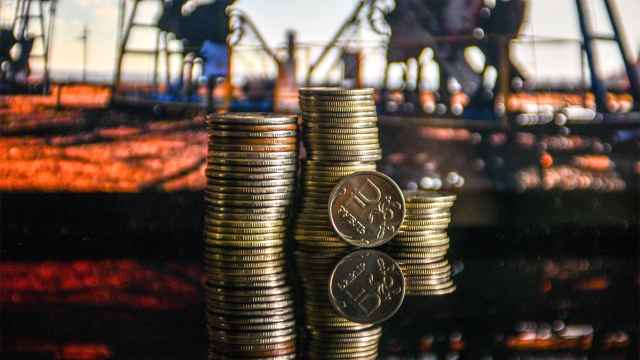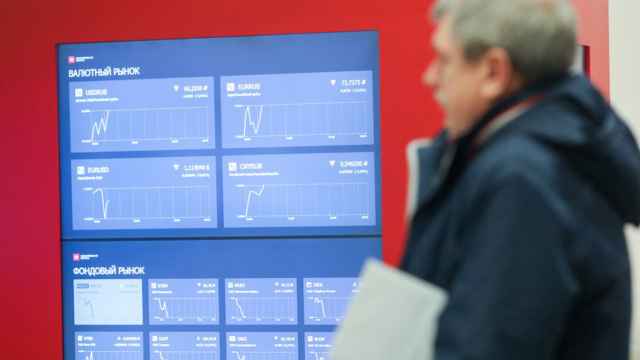Russia’s businesses had a record-breaking 2021, yet frustration among owners remains high, optimism for the future is in short supply and fears of Kremlin intervention are growing.
Corporate revenues have risen by at least a third during 2021, and turnovers at large and medium sized businesses are set to hit their highest levels ever this year. At the same time, for the third consecutive year 87% of CEOs say doing business in Russia is difficult, according to a recent survey of corporate leaders by consultants PwC.
The mood among Russian businesses is akin to a lyric from the popular Soviet song “Moscow Nights”, said Igor Lotakov, PwC Moscow’s managing partner: “The river moves and does not move.”
In other words, in corporate Russia, profits may be rising, but the fundamental challenges stay the same.
Analysts say that paradox — rising profits and pervasive pessimism — can largely be attributed to the tense relationship between Russia’s corporate sector and the Kremlin. The government is regularly accused of treating firms as an extended arm of the state, putting employment levels, paying taxes and investing in its priority areas above innovating, boosting productivity or increasing profits.
“The government is not focused on business performance at all. It’s not the government’s priority,” said Russian analyst Madina Khrustaleva of consultants T.S. Lombard in London.
These dynamics were on full display in 2021 — and business owners fear the government’s anti-business turn will only intensify in 2022, particularly with economic growth set to fall back to its sluggish pre-coronavirus trends.
More than half of the 1,000 CEOs in the PwC survey said they didn’t trust the government to take the views of business owners into account when forming policy.
Corporate responsibility
For many, the coronavirus pandemic ushered in a more overt anti-business turn from the government, both through the modest levels of support offered to businesses and a move in policy and rhetoric to push businesses to contribute more to the Russian budget.
The metals sector — booming from surging global prices — was hit with a $2-billion windfall tax on exports, and pledges to overhaul tax legislation to drive more of their superprofits into the government’s coffers.
Prime Minister Mikhail Mishustin said “corporate greed” was behind surging food prices, imposed price controls and asked federal agencies to increase inspections of supermarket chains to ensure prices stayed in check.
The message to firms was clear — profits come second.
Khrustaleva believes that position has broad support from the Russian public, allowing the Kremlin to target businesses more aggressively in the year ahead.
“The parliamentary elections in 2021 showed there is a very strong left-wing sentiment among the public. From households and the electorate, there is pressure for more measures like price controls and to deliver better living standards. In this situation, the government will have to take more of businesses’ profits,” she said.
With Russia’s political cycle now moving toward presidential elections in 2024, and after eight years of stagnating living standards and wages when Russian households largely paid the cost for the Kremlin’s ultra-conservative economic policy, that pressure is set to switch decisively against the corporate sector in the coming years.
Experts expected the Kremlin to use two key methods to ensure businesses make a heftier financial contribution.
First, more windfall profits taxes, like those being levied on the metals sector. This is seen as a more favorable instrument than the cruder option of overt price caps or export quotas, which have been criticized by economists and are staunchly opposed by the Central Bank.
Second, tax adjustments targeting “Russia’s largest private cash-generating and dividend-paying companies … to make them invest more in public projects,” said Sova Capital’s Artem Zaigrin.
All of this is likely to make 2022 difficult for Russia’s giant metals and mining companies, which generate huge profits and have already been targeted politically for what the Kremlin sees as insufficient tax contribution. They are also set to come into the crosshairs of the government’s new-found energy to, at least modestly, greenify the economy and de-pollute smog-affected industrial cities.
The government’s ambitious plans to invest in the country’s infrastructure and build many new roads, houses and railways would also put more pressure on the country’s important metals sector as it would become an even bigger purchaser of their construction goods while being unwilling to pay high prices.
Squeezed
Even where the government doesn’t get directly involved, businesses will face bottom-up pressures on their bottom lines.
Russian unemployment is running at near historic lows, and the country has yet to replace most of the millions of migrant workers who left at the beginning of the pandemic. Combined with long-standing demographic problems, exacerbated by the coronavirus, the competition for workers is going to be intense in 2022.
Most worrying, said Khrustaleva, is that the country’s unemployment rate didn’t tick higher at the end of the agricultural harvest season, as it typically does.
“That’s going to be a problem, especially in spring when there is the next big increase in demand for labour. Moreover, the government will be launching new investment programs, as will state-owned companies like Gazprom and Rosneft — all of which will drive demand for labour, but there is essentially none.”
Two in three of the CEOs surveyed by PwC said they could not find skilled workers — second only to the number who complained about high tax rates.
One sector that is likely to buck these wider trends in 2022 — not least due to an expected step-up in government support and subsidies — is Russia’s vital hydrocarbons sector.
The industry will gradually increase output over the next year in line with the OPEC+ agreement, and is also set to benefit from high energy prices. Sova Capital’s Zaigrin estimated that half of all growth in the Russian economy in 2022 will come from the oil and gas sector.
For Russia, the necessity of exploiting its vast oil and gas resources now, while there is still buoyant demand for fossil fuels, means other sectors are likely to fall down the priority list.
In particular, tax breaks awarded to Rosneft for its Arctic oil investment program will further increase the sector’s competitiveness — driving workers, and resources, away from other parts of the economy, analysts forecast.
For Russian businesses not in chosen sectors or industries likely to receive big government support, 2021 might turn out to have been their peak.
“High margins are not going to continue. From now on, it will only be getting tighter and tighter,” said Khrustaleva.
“Things for businesses are looking really bad.”
A Message from The Moscow Times:
Dear readers,
We are facing unprecedented challenges. Russia's Prosecutor General's Office has designated The Moscow Times as an "undesirable" organization, criminalizing our work and putting our staff at risk of prosecution. This follows our earlier unjust labeling as a "foreign agent."
These actions are direct attempts to silence independent journalism in Russia. The authorities claim our work "discredits the decisions of the Russian leadership." We see things differently: we strive to provide accurate, unbiased reporting on Russia.
We, the journalists of The Moscow Times, refuse to be silenced. But to continue our work, we need your help.
Your support, no matter how small, makes a world of difference. If you can, please support us monthly starting from just $2. It's quick to set up, and every contribution makes a significant impact.
By supporting The Moscow Times, you're defending open, independent journalism in the face of repression. Thank you for standing with us.
Remind me later.







